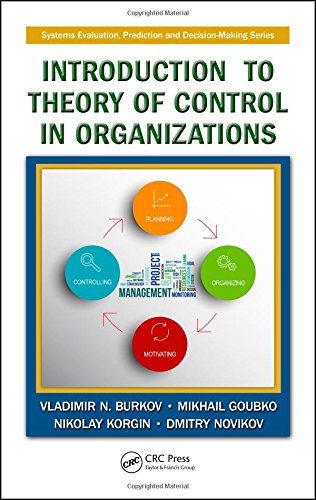

Most ebook files are in PDF format, so you can easily read them using various software such as Foxit Reader or directly on the Google Chrome browser.
Some ebook files are released by publishers in other formats such as .awz, .mobi, .epub, .fb2, etc. You may need to install specific software to read these formats on mobile/PC, such as Calibre.
Please read the tutorial at this link: https://ebookbell.com/faq
We offer FREE conversion to the popular formats you request; however, this may take some time. Therefore, right after payment, please email us, and we will try to provide the service as quickly as possible.
For some exceptional file formats or broken links (if any), please refrain from opening any disputes. Instead, email us first, and we will try to assist within a maximum of 6 hours.
EbookBell Team

5.0
50 reviewsIntroduction to Theory of Control in Organizations explains how methodologies from systems analysis and control theory, including game and graph theory, can be applied to improve organizational management. The theory presented extends the traditional approach to management science by introducing the optimization and game-theoretical tools required to account for the special nature of human beings being viewed as control objects.
The book introduces a version of mechanism design that has been customized to solve the problems that today’s managers must contend with. All mathematical models and mechanisms studied are motivated by the most common problems encountered by managers in firms and non-profit organizations.
Requiring no prior knowledge of game theory or mechanism design, the book includes a systematic introduction to the underlying methodology of modern theory of control in organizations. The authors use formal methods to construct robust and efficient decision-making procedures which support all aspects and stages of management activity over all decision horizons—from operational to strategic management.
The mathematical and methodological backgrounds of the organizational mechanisms discussed are not limited to game theory but also include systems analysis, control theory, operations research, and discrete mathematics.
The book includes a set of exercises in each chapter—from simple to advanced—that provide the reader with the understanding required to integrate advanced methods of optimization, game theory, and mechanism design into daily managerial practice.